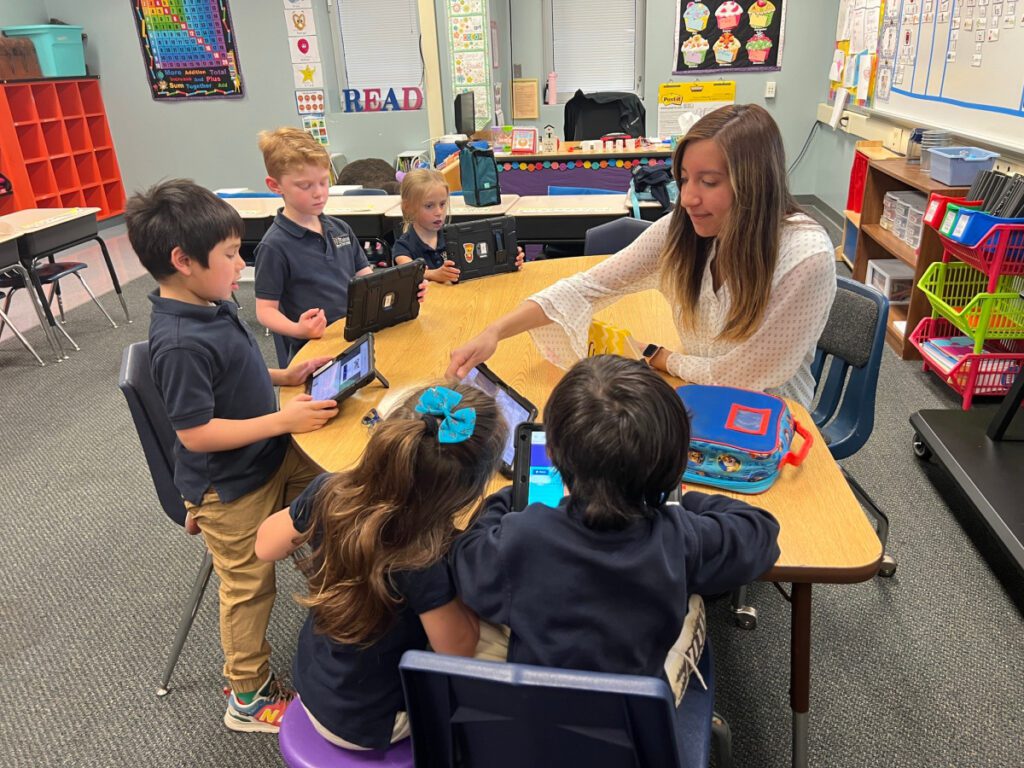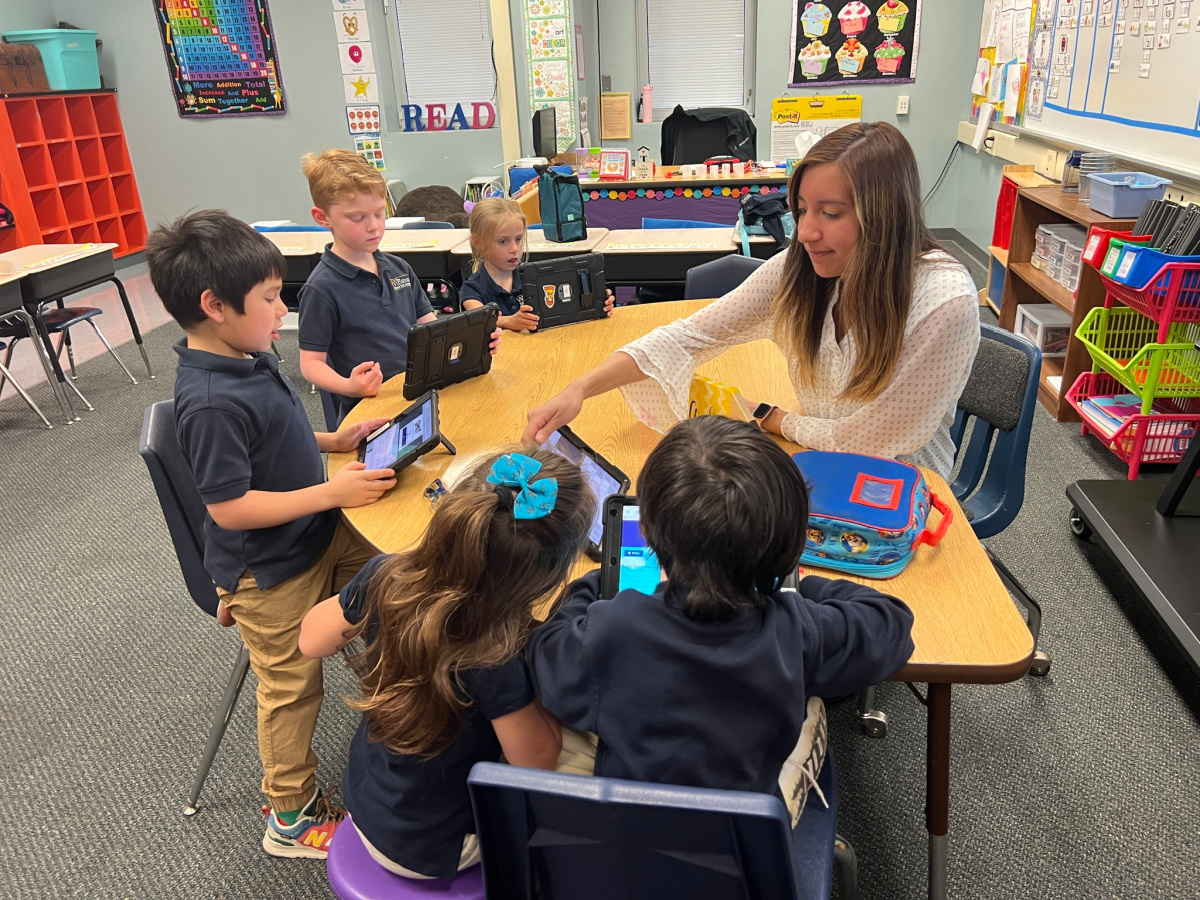
We are proud to feature this guest post by Michelle Spoonemore, Ph.D., who shares expert advice on understanding and supporting your child with ADHD. Drawing from her experience as Head of School at The Winston School of San Antonio—a college preparatory school for students with high potential and identified learning differences—she provides valuable insights for parents.
ADHD is more than hyperactivity. ADHD, or Attention Deficit Hyperactivity Disorder, is a neurodevelopmental disorder that impacts a person’s thinking, feelings, and behavior. For millions of school-aged children diagnosed with ADHD, the prefrontal cortex of the brain does not perform at the expected level based on their chronological age. The prefrontal cortex regulates decision-making, emotions, and behavior. A child with ADHD may be impulsive, easily distracted, have difficulties focusing or remembering, and struggle with emotional control compared to a child of the same age. Understanding ADHD can empower parents to provide the necessary support and environment for their child to thrive.
ADHD and Academics
Early intervention helps children develop coping strategies, social competencies, and academic skills. The later a diagnosis is made, the more likely a child may have gaps in basic skills, especially math and language arts, before receiving treatment for ADHD. Nearly fifty percent of children and adolescents with ADHD also have some type of learning disability, such as dyslexia or auditory processing disorder. An identified learning disability may explain why a child with ADHD on medication can sit still and stay focused and continue to struggle academically.
ADHD and Sleep
Sleep disturbances are common in children with ADHD. Poor sleep can exacerbate ADHD symptoms, making it difficult to focus and control behavior. Establishing consistent sleep routines and creating a calming bedtime environment can be beneficial.
Medication and Therapy
In some cases, medication may be recommended as part of a comprehensive treatment plan. Therapy can also be beneficial, providing strategies for coping with ADHD symptoms. Always consult with your child’s healthcare provider to determine the best approach.

ADHD and Self-Esteem
Children with ADHD may experience challenges with self-esteem. It’s important to focus on your child’s strengths and celebrate their successes, no matter how small. Encourage them to develop their interests and hobbies, and provide opportunities for them to build confidence. Positive reinforcement and celebrating small victories can boost your child’s self-esteem.
Positive Parenting Strategies
Creating a structured environment, effective communication, and organizational tools can make a big difference. Consistent routines, clear instructions, and visual aids can help your child stay on track. Encourage physical activity, a balanced diet, and sufficient sleep.
Advocating for Your Child
As a parent, you are your child’s strongest advocate. Stay informed about ADHD and its impact on your child. Communicate openly with teachers and school administrators to develop an effective educational plan designed to meet your child’s needs.
Understanding ADHD is the first step to providing the best support for your child. By staying informed and seeking professional guidance, you can unlock your child’s full potential and build a brighter future.

Charter Moms Chats – Understanding and Supporting Your Child with ADHD
Watch Michelle Spoonemore, Ph.D., Head of School at The Winston School San Antonio, speak with Inga Cotton on Charter Moms Chats on September 18, 2024 at 4:00 PM Central live on Facebook and YouTube.
Michelle Spoonemore, Ph.D. is a seasoned educator with a distinguished career dedicated to serving the needs of diverse learners. As Head of School at The Winston School San Antonio, she is a visionary leader committed to creating an inclusive and supportive learning environment. Dr. Spoonemore is a graduate of Texas Tech University with a Ph.D. in Curriculum and Instruction, specializing in Curriculum Studies and Teacher Education.
Prior to moving to San Antonio, Dr. Spoonemore served as Assistant Head of School in Dallas, Academic Dean in Houston, and Instructional Coach and teacher in public schools. Her passion for teaching stems from her own love of learning. As a new classroom teacher, she used her own experiences as a student to build systems that created opportunities for students to thrive academically, socially, and emotionally. Now, with more than two decades of experience, she leverages research-based practices to ensure students receive personalized instruction and are empowered to reach their full potential.
Read More About Students with Functional Needs
- “What Are Executive Function Skills and How Can a Coach Help?,” Holly Glasgow and Andrew Pandolfi, San Antonio Charter Moms, August 29, 2024
- “Left Brain, Right Brain: Understanding Your Brain and Helping Others,” Angie Estes, San Antonio Charter Moms, August 21, 2024
- “Functional Needs Schools in San Antonio,” San Antonio Charter Moms, August 20, 2024
- “Pediatric Constellations Helps Families Find Their Village,” Rosa Benavides and Sergio Rodriguez, San Antonio Charter Moms, April 23, 2024
- “Rise School San Antonio Will Serve Students Like Isabelle, Daughter of Carter English,” Carter English, San Antonio Charter Moms, December 12, 2023
- “Guide to Enrolling in Celebrate Dyslexia Schools for 2024–25,” San Antonio Charter Moms, December 5, 2023
- “Guide to Enrolling at The Foundation School for Autism—San Antonio for 2024–25,” San Antonio Charter Moms, November 30, 2023
- “The Day My Son Learned About His Seven Cognitive Skills and Decided to Pursue Medicine,” Erin Kirwan, San Antonio Charter Moms, May 3, 2023
- “‘I Used My Voice’: Juli Henderson Advocated for Her Children’s Needs,” Juli Henderson, San Antonio Charter Moms, March 1, 2023
Read More Perspectives About Private Schools
- “Grace Christian School San Antonio: Parent, Student, and Teacher Perspectives,” Stephen and Jaci Moody, Faye Fletcher, and Sharon Samplaski, San Antonio Charter Moms, August 27, 2024
- “Gifted with Dyslexia: Kelly Shy-Maranca Shares a Parent’s Perspective on The Winston School San Antonio,” Kelly Shy-Maranca, San Antonio Charter Moms, January 11, 2024
- “Learn About The Circle School from Teacher Jason Gossard and Student Niko del Valle,” Jason Gossard and Niko del Valle, San Antonio Charter Moms, January 10, 2024
- “Rose Parham Shares a Parent’s Perspective From the Keystone School,” Rose Parham, San Antonio Charter Moms, April 26, 2023
- “Jerrel Williams Is a Teacher, Coach, Chef, and Leader at Shepherd of the Hills Lutheran School,” Jerrel Williams, San Antonio Charter Moms, March 8, 2023
- “Jennifer Semanko Shares Her Pre-K Teacher Tales from Shepherd of the Hills Lutheran School,” Jennifer Semanko, San Antonio Charter Moms, March 23, 2022
- “Megan Garcia Shares a Parent Perspective from Shepherd of the Hills Lutheran School,” Megan Garcia, San Antonio Charter Moms, February 23, 2022
